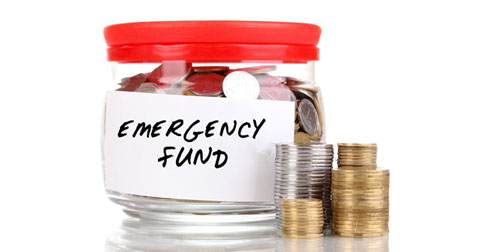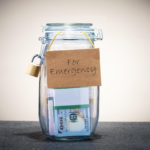While doing financial planning, it is always advised that one should keep a certain amount of money in an emergency fund to deal with unexpected situations. As it is said, “Precaution is better than cure”, most of the financial experts advise the creation of an emergency fund to deal with a crisis.
Acting as a ‘friend in need’, an emergency fund should have money equivalent to three or six months of your expenses. Here the critical question that may arise is— Where to save the money? Though bank saving account is the easiest way to save money for meeting emergency money requirements; one should always pick that investment option which can generate decent returns as well.
Let’s have a look at some of the different ways through which you can create an emergency fund and also earn returns as per your risk profile.
- Liquid Funds
Those people who have aggressive risk profile while investing should go with liquid or short-term funds. Here you would be able to earn returns up to 8%-10%. However, these returns are market-oriented and thus, may increase or decrease as per the market conditions.
You never know when the cash requirement may arise. In such a case, liquid funds can help you. You can withdraw money from liquid funds at any point in time. Liquid funds offer better flexibility and tax- efficient returns if you keep investing your money for a long duration.
- Payment Banks
A payment bank is like any other bank with a difference that it operates on a small level without the involvement of credit risk. In simple words, it can only receive deposits and remittances but can’t offer any financial products, like loans, credit cards, etc. Further, payment banks can accept deposits up to Rs 1 lakh only. However, they offer great convenience. They enjoy wide distribution since the fuel stations, post offices, retail shops, dairy milk booths, etc.; can act as a mini bank branch.
As a result, there is a good chance that your payment banks will be situated in your vicinity. Further, you can avail higher interest rate without a need to maintain a zero-balance account. Some of the banks which have opened payment banks are Airtel Payments Bank Ltd, India Post Payments Bank Ltd, Fino Payments Bank Ltd and Paytm Payments Bank Ltd.
These payment banks give you the flexibility to withdraw money easily. For instance, if you are using Fino Payments Bank, you can withdraw money from any Fino Payments Bank branch or merchant outlet by using the debit card offered by the payment bank.
- Bank Saving Account
Reiterating, most of the people prefer to keep their money in their bank saving account to deal with an emergency. You can quickly withdraw money kept in your bank saving account through a different medium like a chequebook, debit card, or by visiting the bank branch. Though returns are quite low; they are favoured by moderate customers. If you have credit cards of these banks, you can also use the credit card or go above card limit in dire need of money.
- Cash in Hand
The easiest way is to keep cash equivalent to three times of your household expenses. With the issuance of new Rs 2,000 currency, it is easy to maintain the emergency fund at home. It is the quickest way to use funds when there is a necessity. However, cash kept at home won’t fetch any interest. Moreover, take all precautions to ensure the safety of cash. Also, use funds in case of emergency only. Once you have used it, make sure to replenish it in future.
Conclusion
Future is uncertain. You never know when cash requirements may arise. Instead of panicking, it is good to be prepared to deal with such unforeseen situations. Creating an emergency fund towards this direction is a right step which you can take.
Related Posts












